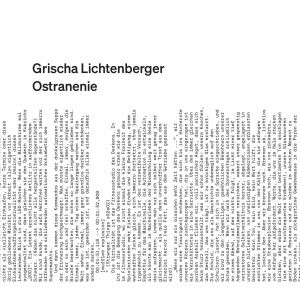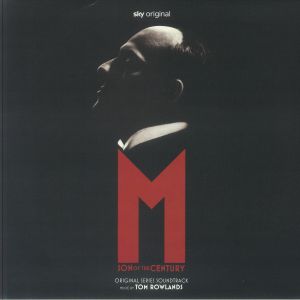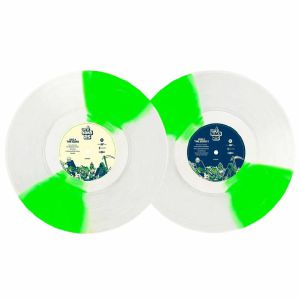Back catalogue: Modern Classical
Juno's full catalogue of Modern Classical
アルバム
Basho/Still Forms (LP + MP3 download code)
Cat: SPGRM 012LP. Rel: 12 Jun 25
Review: Portraits GRM offer a split release between Beatrice Dillon and Hideki Umezawa, riffing on 'basho' and Baschet respectively. Dillon's 'Basho' is shaped on the mortar of a Japanese philosophical concept: conceived by Japanese philosopher Kitaro Nishida, basho describes a post-physical plane in which experiences and thoughts interconnect, dissolving subject-object distinctions. Dillon and Umezawa's music both resist fixity, reactivating the listener's attention by way electronic sounds stripped of origin. Umezawa's 'Still Forms', however, contrasts Dillon's firm-footed techno curtails with an entirely beatless piece, exploring the sonic potential of Baschet sound structures: experimental instruments developed in the 1950s by Bernard and Francois Baschet. Electroacoustic cognitions branch out like newly grown synapses on this fresh 12".
… Read more in stock $23.52
Review: A striking collection of digitally manipulated piano pieces, each one of them on this album are named after iconic films and TV shows. They are all crafted late at night as a response to passive media consumption and aim to blur the line between classical impressionism and contemporary digital manipulation. Drawing inspiration from Viktor Shklovsky's concept of "ostranenie" (which means estrangement), the work challenges habitual perceptions and makes the familiar feel strange. The music oscillates between mechanical MIDI chaos and intimate, fragile moments that question the emotional stakes of sound in a world where technology can often flatten deeper meaning. It's a profound exploration of art's role in resisting the numbing effects of mindless routine and endless immersion culture.
… Read more in stock $42.57
Review: Adapted from the Premio Strega-winning novel of the same name, penned by Antonio Scurati, M - Son of the Century is an ambitious performance piece about the political rise of Benito Mussolini, directed by BAFTA-grabber Joe Wright. As for the soundtrack, one half of The Chemical Brothers, Tom Rowlands, delivers a spellbinding, raw and truly emotional electronic epic which translates a tense and uneasy tale into sounds. "A lot of this original soundtrack was built around playing old acoustic instruments using modern electronics; working in that way helped me reference the past yet still create something fresh and dynamic," Rowlands has said of his efforts. A thoroughly unique and masterful series of compositions which could only have been created by a master of the craft.
… Read more in stock $24.93
VARIOUS
The Sims 25th (Soundtrack) (gatefold clear & neon green pinwheel vinyl 2xLP)
Cat: ETR 229LITA. Rel: 10 Jun 25
Review: A quarter of a century is a long time in any form of media or entertainment. But when it comes to video games and music, it might as well be a full century. What feels like a lifetime ago, in 2000 The Sims helped define a playable genre that had only seen niche popularity in the past with titles like Little Computer People and Creatures, and more mainstream attention with the standalone pet-in-your-pocket craze kickstarted by Tamagotchis. Breaking open the barriers between regular folk and the idea of living an entire life through a character on screen - now something we've become very used to - The Sims was revolutionary and appealed across the board. So it needed a soundtrack that could do the same. And that's exactly what it got. Beautifully immersive piano overtures, bouncy chip tunes, the kind of tracks you might find on a home shopping channel interlude... you get the point.
… Read more in stock $72.82

 USD
USD









